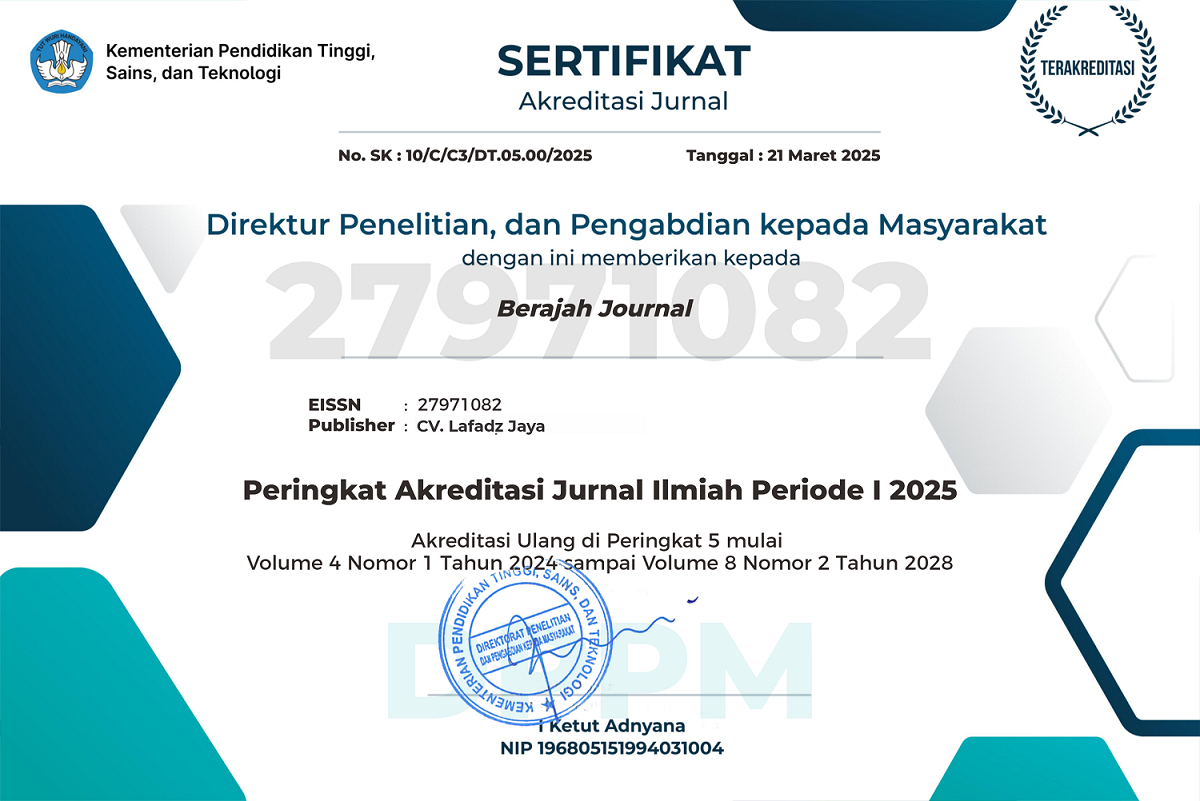PENGEMBANGAN DAYA TARIK DESA WISATA DI KABUPATEN BADUNG DENGAN PENDEKATAN POSTFORDISM
DOI:
https://doi.org/10.47353/bj.v4i2.314Keywords:
tourist attraction, tourism village, postfordismAbstract
The aim of this research is to examine tourism development in Badung Regency, Bali, with a focus on the concept of Tourism Village and the application of the principles of postfordism. Referring to the Badung Regency Regional Regulations relating to Tourist Attractions and Tourist Villages, Badung has accommodated a number of diverse tourist attractions, including natural beauty, cultural heritage and adventure destinations. This research methodology adopts a literature study approach, which is a data collection method by utilizing related literature from various sources. Referring to the Tourism Village concept, Badung is identified as having integrated local economic growth, cultural preservation and environmental protection in tourism development. This approach not only generates economic benefits, but also strengthens cultural and environmental aspects, creating an unforgettable tourism experience for visitors. Through the principles of postfordism, Badung embodies a model of social and political regulation that regulates the relationship between tourist consumption, local economic growth, and cultural and environmental preservation. Thus, the development of Badung tourism through the Tourism Village concept reflects a holistic and successful economic strategy in creating sustainability in the tourism sector.
Downloads
References
Darsana, I. M., & Jayadi, U. (2022). Perspektif Pekerja Hotel Berbintang Di Destinasi Wisata Sanur Terhadap Literasi Investasi Saham Di Masa Pandemi Covid-19. Siwayang Journal: Publikasi Ilmiah Bidang Pariwisata, Kebudayaan, Dan Antropologi, 1(1), 23-32.
Ginaya, G. (2023). Pergulatan Diskursus Kepariwisataan dan Pasar Rusia di Bali. Garudhawaca.
Mayasari, R., Febriantoko, J., Putra, R. R., Hadiwijaya, H., & Kurniawan, D. (2022). Digitalisasi Desa: Pilar Pembangunan Ekonomi Desa. Penerbit Nem.
Mestika Zed. (2004). Metode Penelitian Kepustakaan, Jakarta: Yayasan Obor Indonesia, Cet. ke-1.
Peraturan Bupati Badung Nomor 47 Tahun 2010, Penetapan Kawasan Desa Wisata.
Permatasari, D. N. C. (2021). Pengembangan Pariwisata Khusus (Niche Tourism) Melalui Penyelenggaraan event Kebugaran (Wellness tourism) di Ubud Studi Kasus Bali Spirit Festival 2019. TOURISM: Jurnal Travel, Hospitality, Culture, Destination, and MICE, 4(1), 1-13.
Prasiasa, D. P. O. P. (2022). Buku Pariwisata Berbasis Masyarakat Di Desa Wisata: Bali Sebagai Kasus.
Prayogi, P. A., & Sari, N. L. K. J. P. (2019). Pengembangan Daerah Pesisir dengan Pemberdayaan Masyarakat Nelayan di Kawasan Pesisir Kabupaten Badung. Jurnal Manajemen Pelayanan Hotel, 3(1), 17-28.
Sianturi, R. H. (2020). Analisis Strategi Pengembangan Wisata Pulau Sibandang Kecamatan Muara Kabupaten Tapanuli Utara. repository.uhn.ac.id
Suprastayasa, I. G. N. A., Adyatma, P., & Tirtawati, N. M. (2022). Desa Wisata Membangun Desa Dengan Pariwisata. LP3M. Poltekpar Bali.
Sya, S. H. A., Pd, M., & Hotimah, O. (2021). Manajemen ekowisata. UNJ PRESS.
Tjilen, A. P., Waas, R. F. Y., Ririhena, S. W., Tambaip, B., Syahruddin, S., Ohoiwutun, Y., & Prihandayani, R. D. (2023). Optimalisasi potensi desa wisata melalui manajemen pengelolaan yang berkelanjutan: Kontribusi bagi kesejahteraan masyarakat lokal. Nanggroe: Jurnal Pengabdian Cendikia, 2(6), 38-49.
Undang-Undang Nomor 22 Tahun 1999 tentang Otonomi Daerah.
Undang-Undang Nomor 32 Tahun 2004 tentang Pemerintahan Daerah
Undang-Undang Republik Indonesia Nomor 10 Tahun 2009 tentang kepariwisataan.
Yacob, S., Qomariyah, N., Marzal, J., & Maulana, A. (2021). Strategi Pemasaran Desa Wisata. WIDA Publishing.
Wirawan, P. E., & Octaviany, V. (2022). Pengantar Pariwisata. Nilacakra.
Downloads
Published
How to Cite
Issue
Section
License
Copyright (c) 2024 Ayu Suwita Yanti, I Wayan Eka Sudarmawan, I Made Hadi Purnantara, I Gusti Ayu Eka Suwintari

This work is licensed under a Creative Commons Attribution 4.0 International License.






















